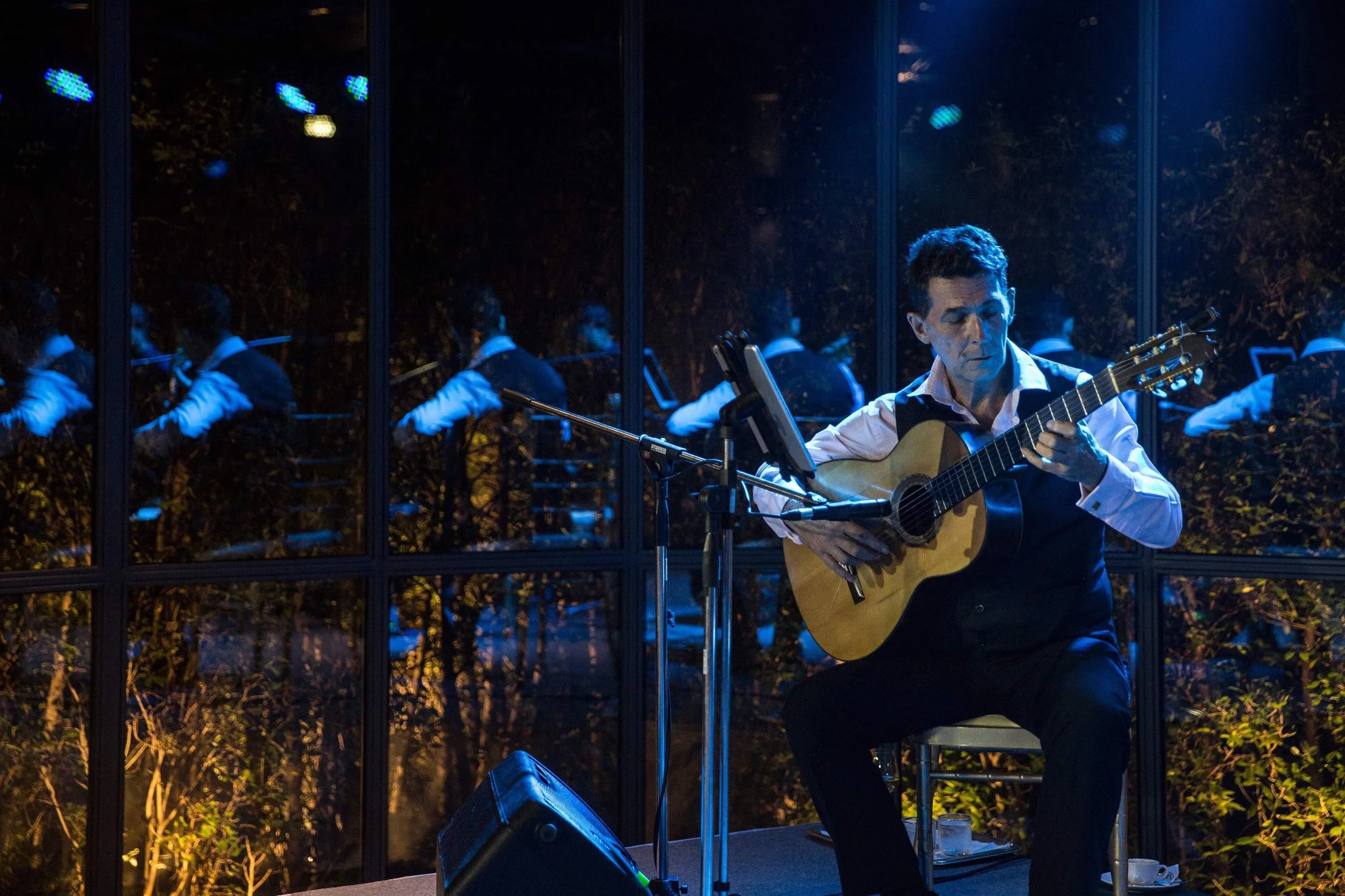Accidental Practice
Accidental practice.
My first memory of a solo school performance is a reminder of my lack of interest in learning structure by heart and repeating it. School term-end approaches, and I am known to be taking Spanish guitar lessons at home, so I
am asked to give a performance at the end of term concert. I’m about 11 years old and not used to rehearsing and performing in public.
The rehearsal day arrives, and I play something for the music teacher. Something I had never played before.
This was not my first go at improvising. I was usually forced into it by my lack of preparation. My music teacher was suitably impressed and told me to play the same in performance. I had no idea of what I’d played. I had just listened without trying to memorize. So when it came to the performance, I just made something else up and hoped no one would notice. My music teacher came up to me afterward and congratulated me on the performance, but it sounded a bit different from rehearsal. I told him it was because I was nervous.
Since then I have learned pieces by heart and polished them in performance. However, once they are under my belt, I will start to rearrange add take away, and play with different rhythms. This method I would do clandestinely as I believed that I was having too much fun. This gave me a way of practicing and making up different ways of going over a tricky passage.
When I find a part of the music that is difficult to play I will practice it, repeating it and listening. This method however quickly bores me, and I lose focus. To keep me on track I will play it slower and slower. Then when it is at a comfortable speed, I will begin to expand on it, adding other passages of harmony and playing with the rhythm.
Not only has this allowed me to avoid the tension of fitting a weak section between mastered ones but more often than not has led to a whole new composition with what was once an unmastered passage.
Awareness of your strengths and weaknesses can save you a lot of time by allowing you to focus on that which needs immediate action before the whole musical vehicle can move forward.
Remember that the start of the practice of new music needs a focus on individual notes and their sequence, dynamics, and timing. The piece is already perfect. It just needs you to find the space within it and settle into its form.
Seeking perfection can have us practice to a point where we can play the piece without thinking but then there’s a risk that it is played without feeling.
Thought is a useful tool but a poor master. It cannot replace the other senses like touch and hearing. Then there are the feelings it evokes in the listener. The ability to hear the music with all its emotion, stress, accentuation, rhythm and dynamic allows a player to free themselves from the structure and play. Just play. One of my teachers gave me some very sound advice on playing and practicing.
‘When you practice never play. When you play never practice.”
Performing should feel free of any agenda or reason to play. Motivation can be in need to express. There may be gains for the performer or listener, but the performance betters when it is allowed to be.
Letting go.
Listen to feedback because you just might have got it right.

